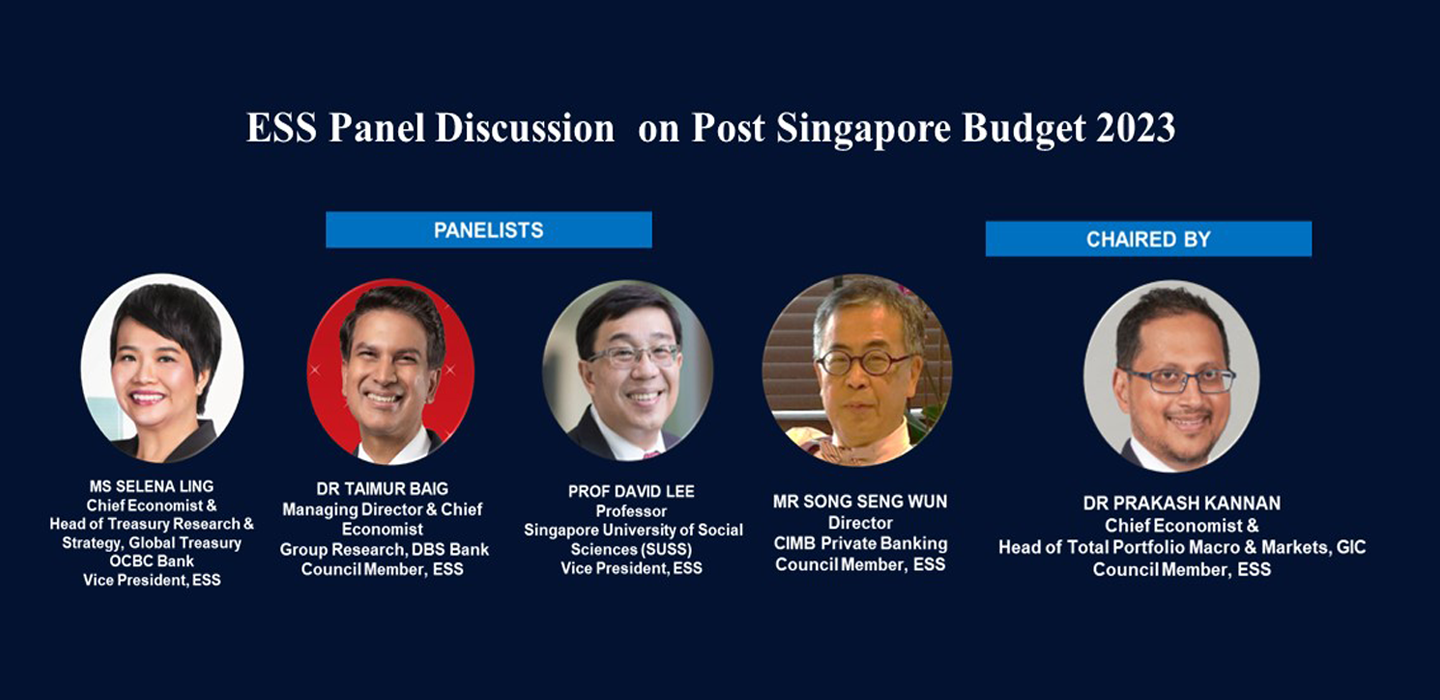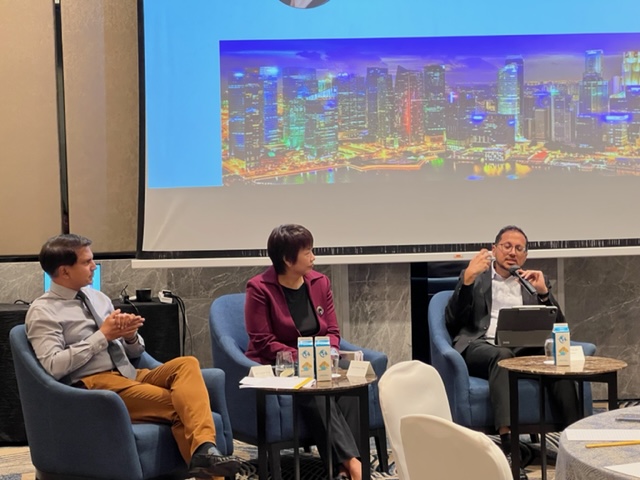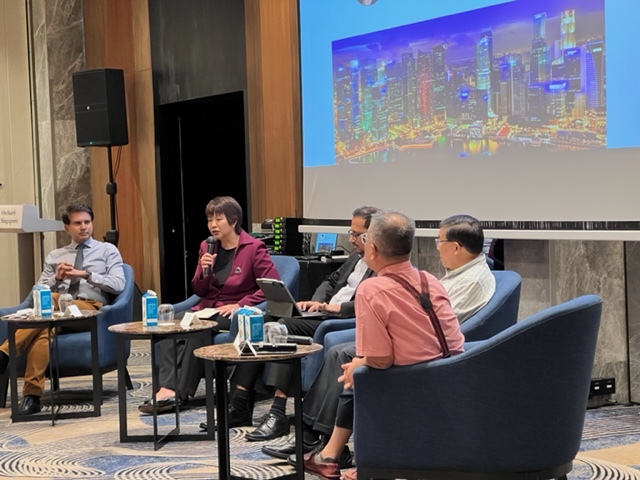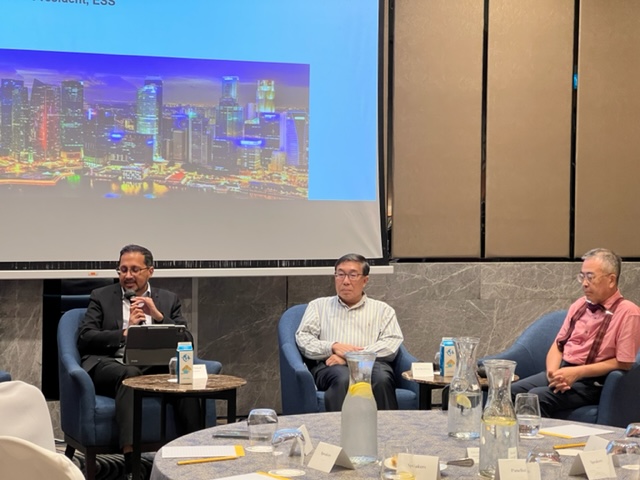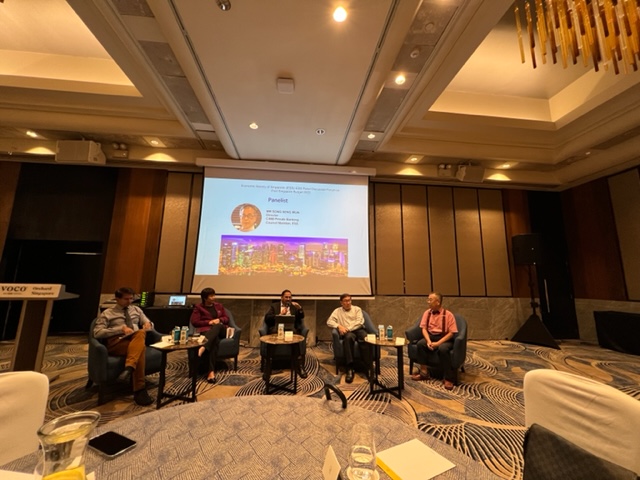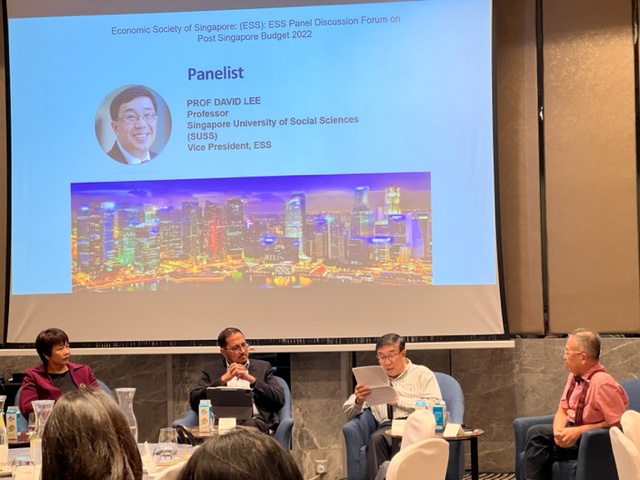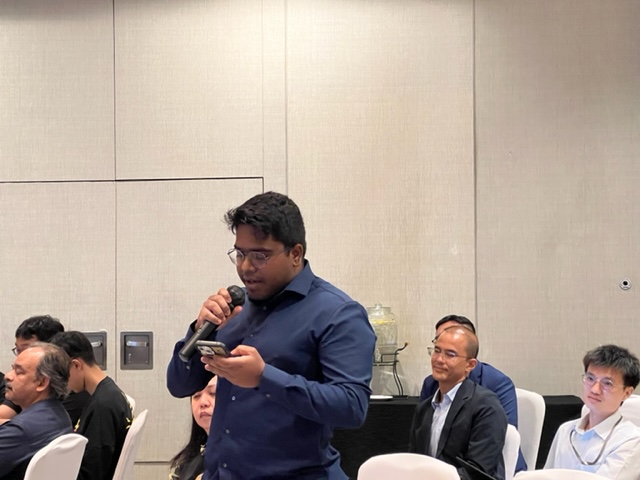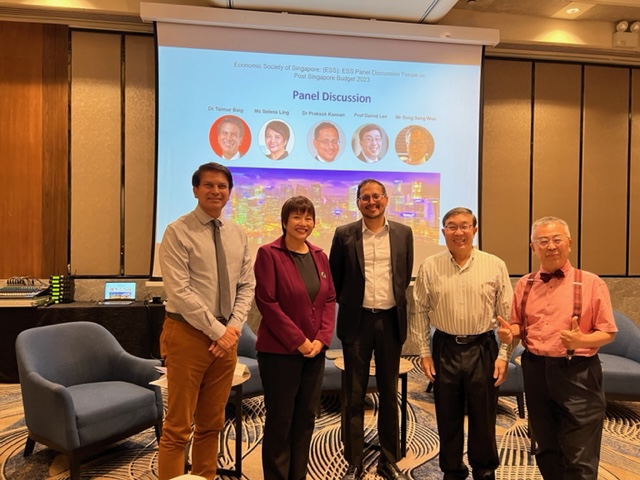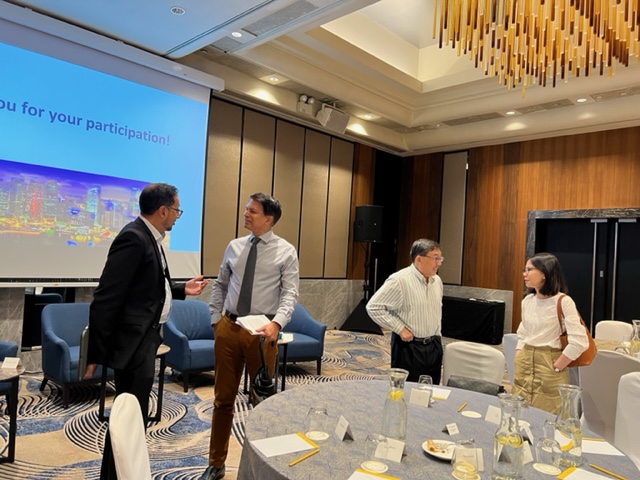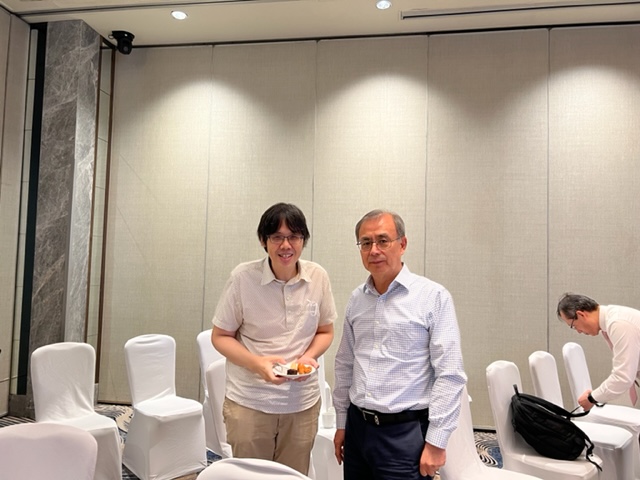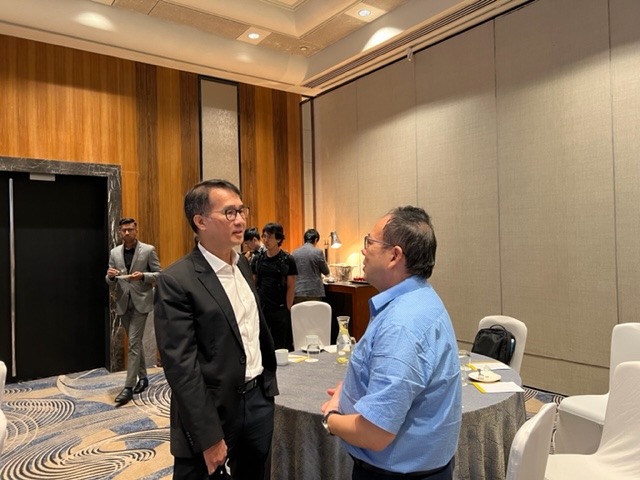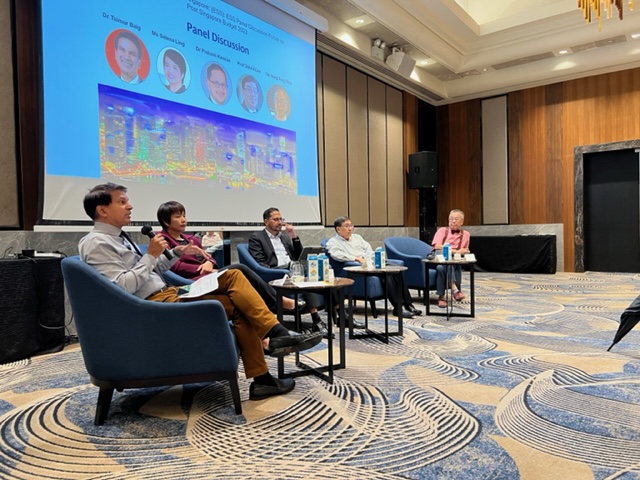
15 February 2023
Summary of Panel Discussion on Singapore’s FY2023 Budget Statement
On 15 February 2023, the Economic Society of Singapore (ESS) held a Post-Budget Panel Discussion at Voco Orchard Singapore, following DPM and Minister of Finance Mr Lawrence Wong’s delivery of Singapore’s FY2023 Budget Statement on 14 February 2023. A distinguished panel of experts was invited to discuss and share their views on this year’s Budget named ‘Moving Forward In A New Era’.
The Chair of the Session, Dr Prakash Kannan, GIC Chief Economist and Head of Total Portfolio, began the forum by stating how the budget was ‘filled with lots of love’. Like its name, Dr Kannan stated that the budget aims to transit Singapore away from the COVID-19 era and deal with new challenges. These challenges range from present issues like higher costs of living to long-term concerns such as productivity.
The first speaker, Ms Selina Ling, Chief Economist and Head of Treasury Research and Strategy for OCBC Bank and ESS Vice President, admitted her surprise with how Singapore did not get a budget surplus despite buoyant tax revenue last year, as well as the generosity of this year’s budget, amongst others. What did not surprise her was how the reserves continue to be Singapore’s ‘insurance policy’.
“It is important for us to ensure that the reserves remain a healthy buffer which can be drawn on in times of crisis,” Ms Ling said.
Ms Ling also raised her concern about the four years of budget deficit amounting to a S$7.3 billion shortfall.
“Given the golden rule of balancing the budget over this government, the onus is on the FY2024 budget. I’m wondering if we need to brace ourselves for Budget 2024. Either it means that inflation is not going down in 2024 or that there may be more things to come in 2024,” Ms Ling commented.
Lastly, regarding wealth taxes such as an increase in Buyer’s Stamp Duty for high-valued properties and taxes for luxury cars, Ms Ling believes that the increase in wealth taxes is a good proxy way to tap into the wealth coming into Singapore, given the absence of capital gain tax in Singapore.
“We assume that these are the wealthier people, and assume that a fair portion of these wealthy people may be foreigners.”
“We can expect more of the same [policies]” she said.
The second panellist, Dr Taimur Baig, Managing Director and Chief Economist at DBS Bank, started by highlighting how we cannot analyse Singapore’s Budget nominally and by comparing it with other countries due to the country’s unique traits on dealing with different aspects of her economy.
“These numbers are not very large given the size of Singapore’s economy,” Dr Baig said. “It’s choice not to have a very large expenditure. It’s choice not to have a very large revenue.”
“Is it just about growth? Or should we consider other aspects? Singapore is almost on the verge of closing its output gap. From the macroeconomic stabilisation perspective, we do not have much of an imperative to support the economy substantially,” he added.
Speaking on sustainability, despite having his wish list yet to be fulfilled, Dr Baig is not too disappointed given that a lot of things have been going on, and understands that this year’s budget is only building on what has already been established.
The third speaker, Professor David Lee from the Singapore University of Social Sciences, ESS Vice President, recognises that Singapore’s Budget 2023 addresses the immediate needs of citizens while staying in line with the long-term strategies of Singapore.
“The Budget tightens the immediate needs of Singaporeans affected by the global uncertainties and inflationary environment. It aims to alleviate the cost of living challenges, enhance workers’ skills, reinforce social cohesion, and create a more robust nation,” Professor Lee said.
He believes that the advantage of Singapore is in having a lot of wealthy immigrants, which allows the country to tax an amount that is deemed reasonable to the rich and without much impact on their consumption, yet sufficient to support and reduce the burden of the poor substantially, especially in inflationary times.
“What is S$80,000 if you are buying a S$1-million-dollar car?” Professor Lee asked.
While acknowledging that Budget 2023 addresses immediate concerns such as cost of living challenges, economic growth and enhancing workers’ skills, Professor Lee highlights the importance to consider long-term issues. Sharing his views on Singapore’s future, Professor Lee recognises that the key issue that Singapore has to address is her ageing population; not just promoting fertility, but also helping elderlies to cope with today’s environment, both materially and psychologically.
“While it may be true that some Singaporeans can fund their lifestyle by selling their assets or using their CPF minimum sum, the psychology impact of downgrading cannot be underestimated. Inflation has made it difficult to maintain the same lifestyle and what they have been accustomed to, especially for those who have no other assets and rely solely on their salary as income, and do not have the support of children or family members. The financial strain can immensely impact and have a ripple effect on one’s life, including health, well-being, relationships, and overall quality of life. As such, it is crucial for policymakers to consider the implications of inflation and demographic changes on Singapore, and implement measures that can help mitigate the impact, especially on the most vulnerable members of the society,” Professor Lee shared.
“Singapore must remain vigilant and address structural challenges posed by demographics and other long-term issues.”
Professor Lee mentioned that it will be ideal for Singapore to follow in China’s footsteps, where elderlies can afford the time to socialise, exercise and do what they enjoy. However, achieving this would require a robust economy.
The final panelist, Mr Song Seng Wun, Director of CIMB Private Banking Director, reminded that citizens should look at Singapore’s Budget 2023 from the big picture perspective, rather than contemplating about the ‘nitty-gritty’.
“Even if the returns become more challenging, it is a small return of a bigger pie which will give us more than just nominal numbers”. Mr Song commented.
While some may be concerned with measures such as tax increases, Mr Song remains optimistic on Singapore’s attractiveness, and that ‘more people still want to live here’.
Following the sharing of views by the panel, the audience was given the opportunity to raise their concerns during the Question-and-Answer segment. An audience stated that he would like to receive insights from the panel regarding the increase in carbon taxes. Specifically, while he understands and is fully supportive of the tax from a decarbonisation angle, he was wondering if it would erode the attractiveness of Singapore from a business perspective.
Responding to the question, the panel echoed that decarbonisation is a global goal and Singapore remains attractive. Ms Selena Ling mentioned that many firms come from countries that already have policies to curb carbon emissions, and the firms are also subjected to their home jurisdiction regardless of where they invest. Hence, many of them already considered these costs and associated factors when deciding their location of investment.
“There is some acceptance, especially [from] the younger generations, that this is the socially right thing to do,” Ms Ling added.
In line with what Ms Ling stated, Dr Taimur Baig reiterated that decarbonisation is being emphasised worldwide, and there is a lot of pressure on countries to address their carbon emission level.
“Every country has a different tax regime with respect to carbon emissions. It’s just a cost of doing business,” Dr Baig said. “We have to look at the current policies in totality.”
“Cost of doing business in Singapore is never cheap” Mr Song Seng Wun commented following Mr Baig’s statement. “But there is something else to get from [investing in] Singapore.”
“Last year, EDB managed to attract a record S$22.5 billion [of investments],” Ms Selana Ling raised. “There’s a reason why investments are still coming to Singapore. It cannot be just carbon taxes or cost of living [that they are concerned with], for example. The whole package must still be attractive.”
In his concluding remarks, Dr Prakash Kannan reiterated Mr Song Seng Wun’s point that ‘we should not lose the forest for the tree’; getting too carried away by the details of Budget 2023 and forgetting about the big picture.
The ESS Panel Discussion on Post-Budget 2023 enlightened different perspectives to view the budget, appreciating the direction that the government is driving Singapore towards while bringing attention to issues where more effort is still required.
Credits to Mr Eugene Or
